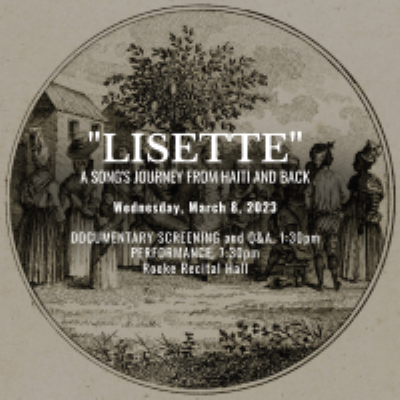On March 8th, Bucknell welcomed Nick Matthew, featuring pianist and Baritone Jean Bernard Cerin for an operatic performance at Rooke Recital Hall. The event was titled “Lisette” A Song’s Journey from Haiti and Back. The event was free and open to the public and was very much a history lesson inside an opera. Jean Bernard Cerin tells the story of Ignatius Sancho, an African British abolitionist, writer, and composer. Born on a slave ship, he would be a freedman and the first person of African descent to vote in a British general election in 1774. Cerin tells the story of Sancho’s contributions to Classical Music and would be a key figure in the involvement of Black voices in Opera.
Cerin retells the invasion, conquering, and liberation of Haiti, then Saint Domingue. Haiti has a rich musical heritage that dates back centuries, encompassing various styles and influences. While traditional Haitian music has played a significant role in shaping the country’s cultural identity, classical music has also had an important presence in Haiti’s history. In the late 1800s, classical music was popular among the Haitian elite, who were influenced by the cultural practices of European colonizers. Lisette, the protagonist of Jacques Roumain’s novel “Lisette a quitte la plaine,” is one example of Haitian Operatic piece. Lisette is a talented pianist and dreams of becoming a professional musician, despite the many obstacles she faces as a young woman from a rural background. Lisette’s story is sung in Haiti and makes its way to France and eventually New Orleans. It’s a cultural masterpiece and staple that highlights the tensions between traditional Haitian culture and the influence of European colonizers, as well as the challenges faced by women in pursuing their artistic passions.
– Michaiah Augustine
